Who is winning the war in Ukraine?
When war propaganda skews our vision of strategic realities in conflict
It is often said that it is better to be ignorant, than to be misinformed- for of ignorance, one can easily remedy this malady. To be misinformed, is a more difficult problem to tackle.
I am writing this article at the start of the one month anniversary of the 2022 Russian invasion of Ukraine, for purposes of highlighting current problems that seem to be arising from both within the corporate media and which are going viral on social media platforms.
Propaganda abounds on both sides, and if there is a single word I would focus on in regards to this, it is that, good or bad, propaganda emboldens the beholder independent of the situation they may find themselves in.
There is much propaganda being spread about the conflict in Ukraine, and much confusion on the strategic situation which is being caused by this. Some of it, such as the “soldiers not surrendering at Snake Island”, or the “Ghost of Kiev” has been revealed to be largely exaggerated, though perhaps still inspirational in some sense (Of Snake Island, claims were that the soldiers stationed there would rather die than surrender to the Russians, which was proven untrue after reports of their surrender and capture. Of the Ghost of Kiev, reports of downed aircraft from a single unit are still largely unconfirmed).
The feeling that the Ukrainians are doing well in the war is certainly true. The West’s initial expectations were that Ukraine would fall in a matter of days. I can recall, during the early days of this invasion, seeing Russian paratroopers land around Kiev, seeing the rapid Russian advance through the countryside, attack helicopters strafing Ukrainian cities, and thinking that the odds were overwhelmingly against the Ukrainians. Contrary to expectations, from both the West and Russia, Ukraine is fighting, and fighting well. It cannot be understated, that the Russian state has bungled its invasion of Ukraine, and expected a very different outcome from its initial blitzkrieg invasion attempt. Russia is certainly facing heavier casualties than expected, harsher resistance, and numerous logistical problems. Russian overextension into the Ukraine has certainly caused many problems for its own military, even with the early gains it has territorially.
It is key to remember, that Russia has an economy comparable to Italy, and so expectations of what Russian military equipment should be, in comparison to the United States or other nations such as Germany, will fall short. Reports of seeing Russian convoy trucks being outfitted with wood shielding are certainly accurate. Soldiers being issued older uniforms or less than par equipment, can be easily expected. Where Russia differs from Italy, is in terms of what it chooses to invest in its military. Whether a police state, or a military state, the Russian orient is very different from the Italian one, even with a similar economy.
Russians are facing a nightmare with logistics in Ukraine. Ukraine is currently within its “muddy season”, Rasputitsa. This is the time of year that both damned Napoleon and the Third Reich, where once traversable roads and paths through the country suddenly become quagmires. Sans access to rails, the Russian war machine is moving much more slowly because of this, and so suffers to supply soldiers who overextended themselves earlier on in the conflict (such as paratroopers around Kiev), who expected much less resistance (a point of interest for another article, I’m sure).
The Russians are facing heavier casualties than expected. Of interesting note is that the Russian army seems to be primarily made up of conscripts and ill prepared soldiers. Reports of Russian soldiers operating without proper logistics or supply lines, and then overextending their reach considerably and then retreating back to more secure locations would perhaps have some merit here.
Of additional problem is that Russian hubris and eagerness to sieze strategic checkpoints caused their military to nominally overextend and to lack coordination within its initial strikes. Is this a mistake that we expect will be repeated as the war continues to progress?
Nominally, Russia compensates for the quality of its soldiers through advancements in artillery and missile technology. The Russian army, is an artillery based army. We saw them use artillery to level cities in Syria. We saw them use artillery to flatten Grozny. In Ukraine, Russia is not, contrary to popular impressions, using the full might of its military power, yet. We are not seeing the same usage of artillery that usually characterizes Russian advances. Perhaps this is for humanitarian reasons, perhaps this is due to many Russians also having Ukrainian family members, or perhaps Putin wants to take cities such as Kiev intact, for future plans for the region. Russia has yet to follow its standard military doctrine, and cries from the West of “Russia is a paper tiger” may be misplaced here, considering in a hot war with the West itself, Russian reluctance to use its missiles or artillery would disappear quickly.
At the same time and even with logistical problems for ground forces, the most populous areas of Ukraine in the south and east are currently under Russian control, or threatened by them. As of today, Mariupol, one of the largest cities in Ukraine, is currently being surrounded and appears ready to fall. It has essentially been cut off from the entirety of the world.
Other cities, such as Kharkiv, while disputed, appear to be falling further and further into the Russian sphere of control. Of the 10 largest cities in Ukraine, only Odesa and Lviv remain relatively untouched, with the majority of Ukraine’s largest cities having already fallen into Russian hands, or being on the verge of falling, save perhaps Kiev.
As of this week, Russia, in an attempt to bolster its image internationally, has started firing “invisible” hypersonic missiles into Ukraine, for its own “precision” strikes. Why is this significant? These missiles, from Moscow, can hit the United states in a matter of minutes. From nearby, they are almost impossible to detect or to defend against, and are near instantaneous strikes with no warning. Even with military setbacks, this is Russia signaling to the West and Ukraine, “we may have problems, but look at what we still have in our arsenal. You do not want to provoke us”. It should be stated as well, that yes, it is possible to arm these missiles with a nuke.
Highlighted in a previous article within this substack, had the West wanted to act in an emboldened manner within Ukraine, the best way to have done that would have been to station soldiers in Ukraine, as a deterrent against Russian attack. The notion of “attack Ukraine, and you will be forced to attack US troops, and to start a world war” may have gone far. This option was ruled out several times by the West, under both the Obama regime, and the Biden regime. While my view may be that of a cynic, the obvious implications of that are that this would potentially tie us to the Ukrainian regime further, ensure that we would be involved in any potential conflict, and was avoided because the United States did not see it in its own strategic interest to fight Russian artillery and missiles (which they would certainly use on us). Biden, himself, stated that he did not want a new world war. Perhaps history will see this as the wrong choice to make during the Ukrainian dilemma, but these were some of the strategic concerns that pressured both regimes to not commit troops to Ukraine.
The situation we currently find ourselves in, needs to be seen for what it is and I do fear that we in the West do not fully understand the gravity of the situation for Ukraine. In ways quite ironic, I am reminded of the American invasion of Iraq, and the initial optimistic propaganda of the time from when the invasion had began. Make no mistake, Ukraine is doing well in this conflict. It is bleeding the Russians for every inch of land that they take. Russia is paying quite dearly for this invasion, but the invasion is still continuing in earnest, and military targets are still being taken by Russians, albeit slowly now, contrary to Russia’s initial blitz strategy.
Propaganda is a double edged sword. It will embolden your own population to continue to fight onwards, but by the same token, if one is emboldened into thinking that you can dictate the peace terms, your nation may continue to fight past the point where negotiations were necessary, may push too far, and may instead elicit a harsher counter reaction in the opposing side. Where Ukraine is at right now, is a situation where a majority of the population believe that they can force the peace that they want, within a matter of weeks. Many within the West share this viewpoint, whereas reports of the death toll on the Ukrainian side, on cities falling to the Russians, etc are not circulating near as much as news of great victories or emboldened last stands.

On the Russian side, contrary to Western expectations, said state exists with a different media apparatus. Within their media, Russia is winning.
In their media, it is the Russians who are the ones inflicting heavy casualties. To their media, the Russians are the ones winning strategic locations. When the Russians take a major city, they report on it and parade the occasion in their media.
Russian casualties are being downplayed, and instead Ukrainian ones are being focused on. Emboldened strikes, such as the destruction of an international volunteer training facility are lauded. Whether true or not, the Russian people seem to believe that their side will be victorious at the end.
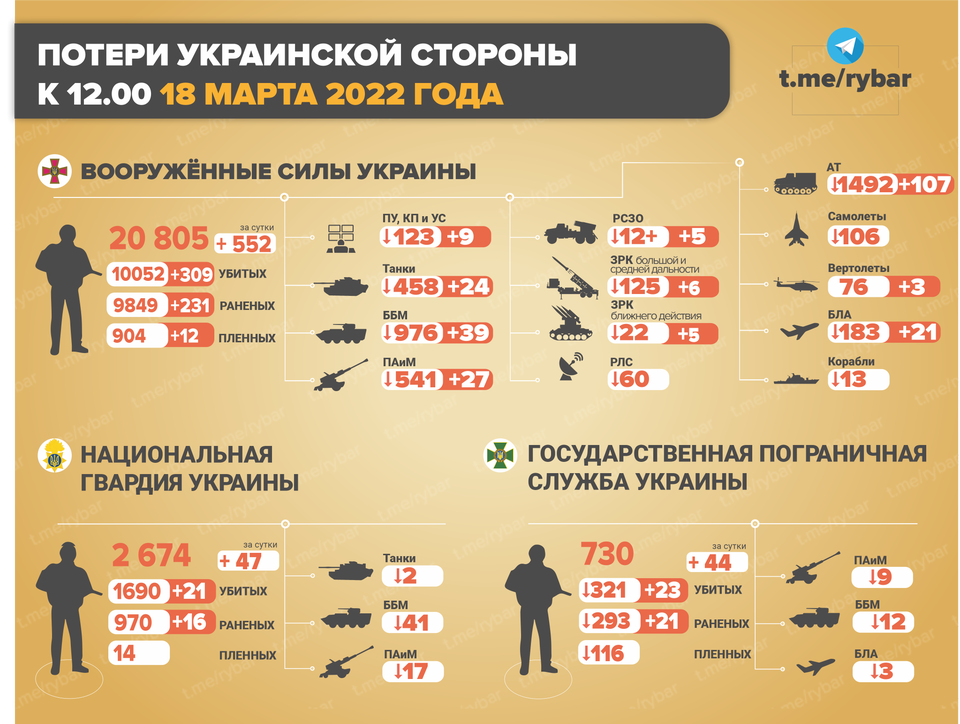
What does this mean, where both sides believe their own to be the one winning? Some of what I’m seeing, it reminds me of great war propaganda, such as in the case of Japan, where their empire focused on victories they had won. Their losses on the other hand(and especially of strategic key areas) were underplayed. Right up until the end there was talk of “if we just achieve a few more victories, we can negotiate a better peace”. In a way, we see similar things with cities such as Mariupol about to fall, with talk focusing less on the strategic implications of this, and more on heroic last stands. The other parallel that this reminds me of is the optimistic “Mission accomplished” moment of the US in Iraq, where winning individual battles was ground for celebration, but where said battles did little to change the strategic course or nature of the conflict to come.
We are currently facing a situation where Russians believe they can win, where Russians are taking key strategic points in Ukraine, where Russians believe they are in the right, and where Putin has the will to continue this war and see it through to the end. Sanctions only go so far, and the Russian economy, while hurt, has now shifted its axis to Beijing. Even if sanctions were removed today, the Russian economy would not reintegrate itself to the West. Following similar cases in history, such as Iran, we see that even with sanctions being lifted, businesses are often reluctant to return to the nation that was previously sanctioned and it may take years or decades for relations to normalize the way they previously were. Russia is already knee deep in Ukraine, and as such, there is little more pressure that can be added from the West to dissuade themselves of this venture- especially if they believe that they are winning and especially if the state apparatus is willing to put its own weight behind the invasion.
When both the West and the East seem to believe that they can force the peace that they want, neither side will negotiate properly. One must be careful when looking at your own emboldened propaganda. If push comes to shove, and this does turn into a long term conflict, which it seems to be turning into, it is the Russians who hold the upper hand with more vast reserves, with weapons still in waiting to be used, with a state that seems hellbent on achieving its goals and the right propaganda to back that up. Early victories during the failed blitz and hubris filled overextended Russian military does not change the long term military situation of Ukraine that it has fallen into. My current fear is that we are setting Ukraine up for a situation which will not benefit it in the long run, and the belief that Ukraine can bully or bluff Russia into accepting a peace that does not address Russian strategic concerns, many of which would cripple Ukraine.
If the West believes it can force the peace that it wants, while it is honorable to fight on, I would urge policy makers to keep in mind that finding a negotiated peace is in the long term interest of Ukraine. The victories of today may be the defeats of tomorrow, and the longer the war goes on, the more Ukrainian cities are destroyed, civilians killed, and land lost- all for war goals that Putin is largely unwilling to renege on. It can easily be observed, that Putin wants concessions from Ukraine, and either a Russian aligned Ukraine, a demilitarized Ukraine, or both. The West needs to realize this, and the West needs to use its own diplomacy, in conjunction with Ukraine, to find a solution which benefits both sides (a negotiated peace), sooner, rather than later. The longer the war goes on, the further either side are from this. We must ask ourselves, sans peace, would we rather see Ukraine a ruin of itself, a new Kosovo, with a mix of Russian occupation and constant guerilla warfare in the West and a Russian puppet regime in the east, or are there any other options for Ukraine? If the choice is between decades of guerilla conflict or a negotiated peace that is further slipping from our grasp daily, one must make their peace now.
When I see talks of war hawks in the West, of people who want to support a perpetual war in Ukraine, I would remind them- the best thing that the West can do is to support Ukraine in finding a negotiated peace and to do everything in our power to aid in the process. Cries of “fight more, you can establish a better peace deal” may do more harm to Ukraine than good in the long run, and even the Ukrainian regime seems to realize this in part. We would do best not to let our own propaganda take our eyes away from the reality of the dire military situation at hand in Ukraine today. Emboldened talks in the West of “We’ll give Russia a guerilla conflict for decades if they dont accept the peace we want” are both juvenile and alien to the situation at hand, and ignorant of the current acknowledgements of the Zelensky regime itself.



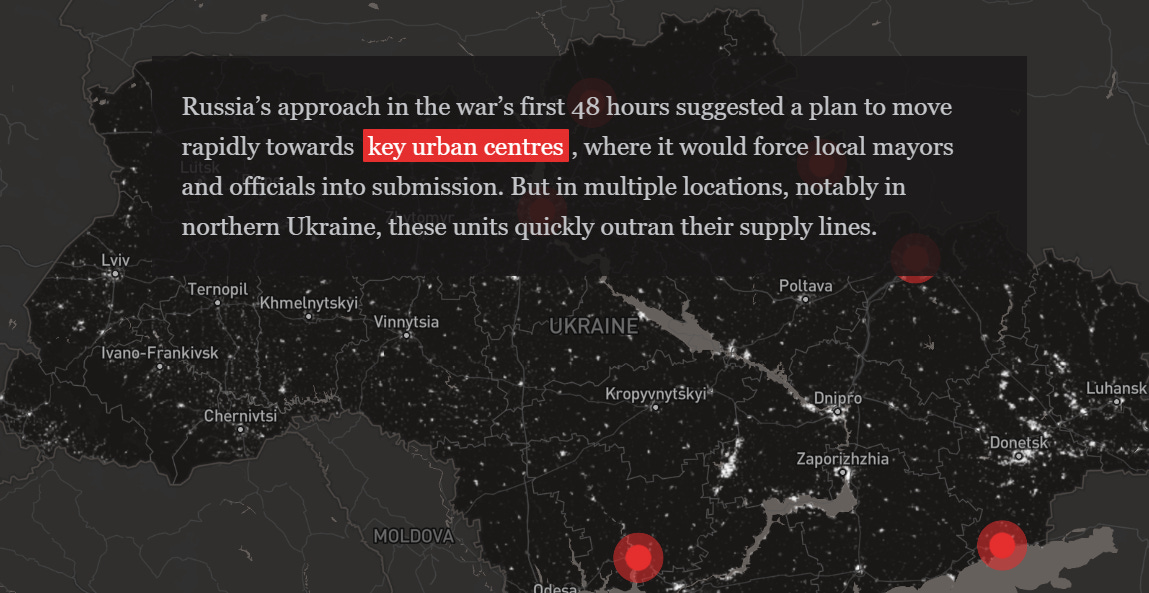
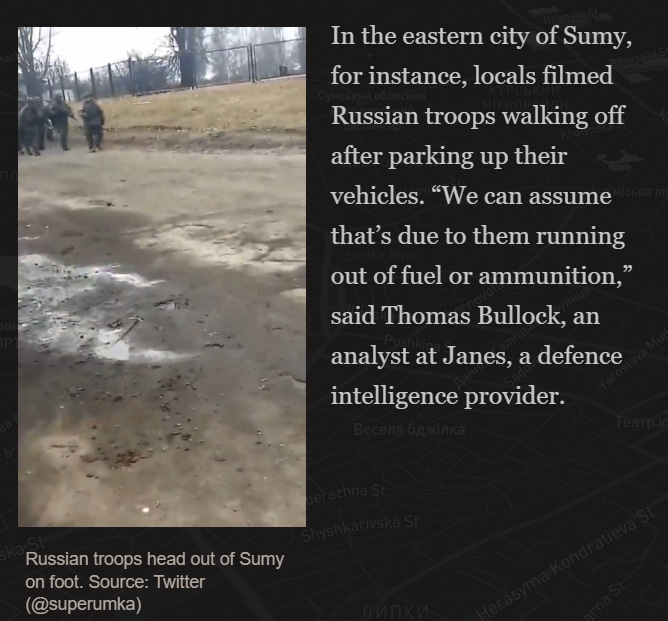
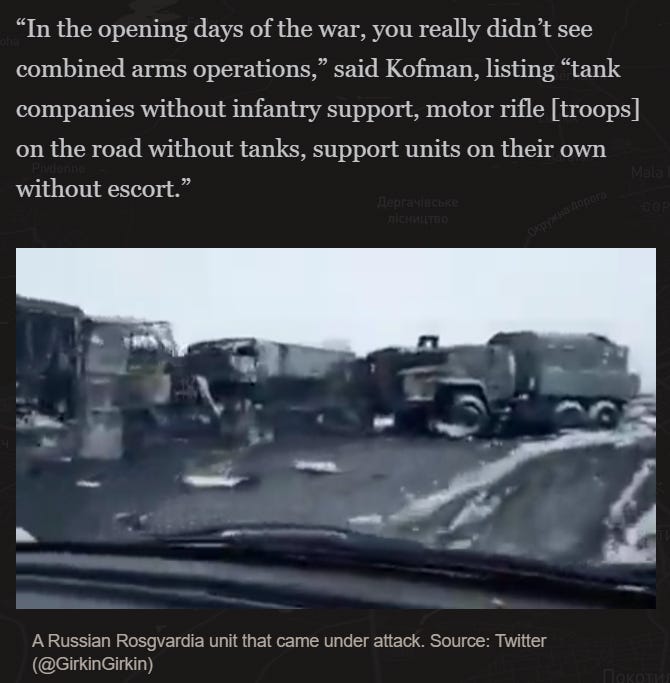
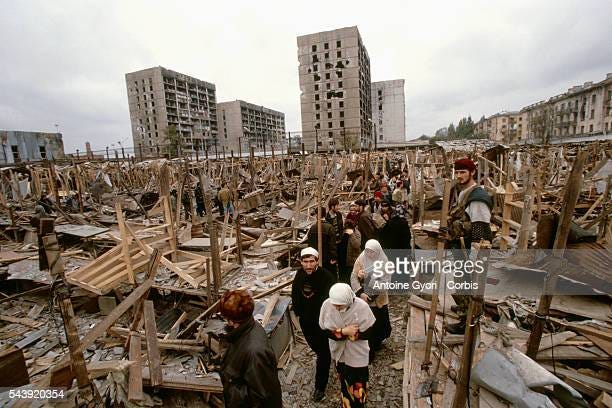
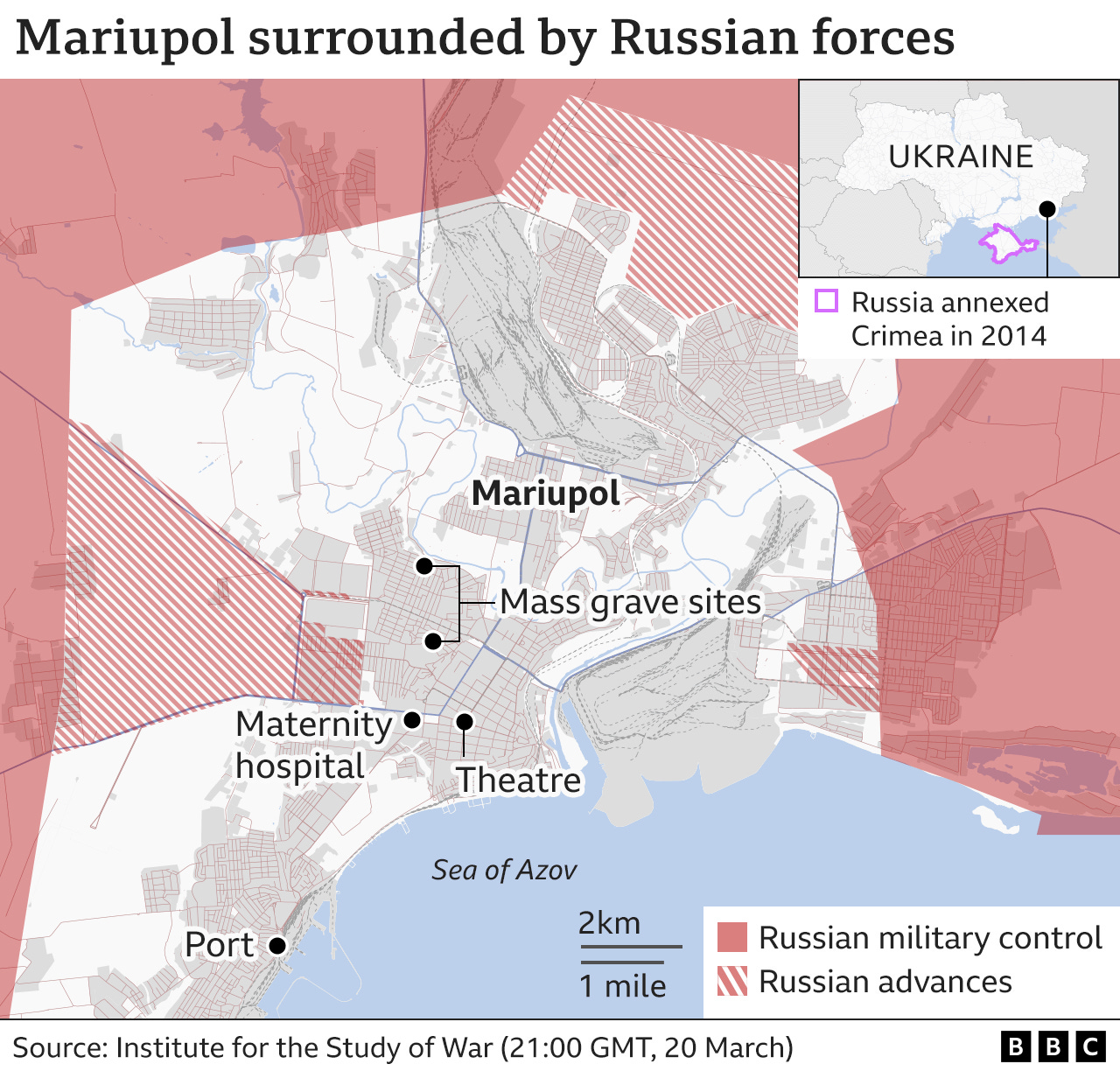
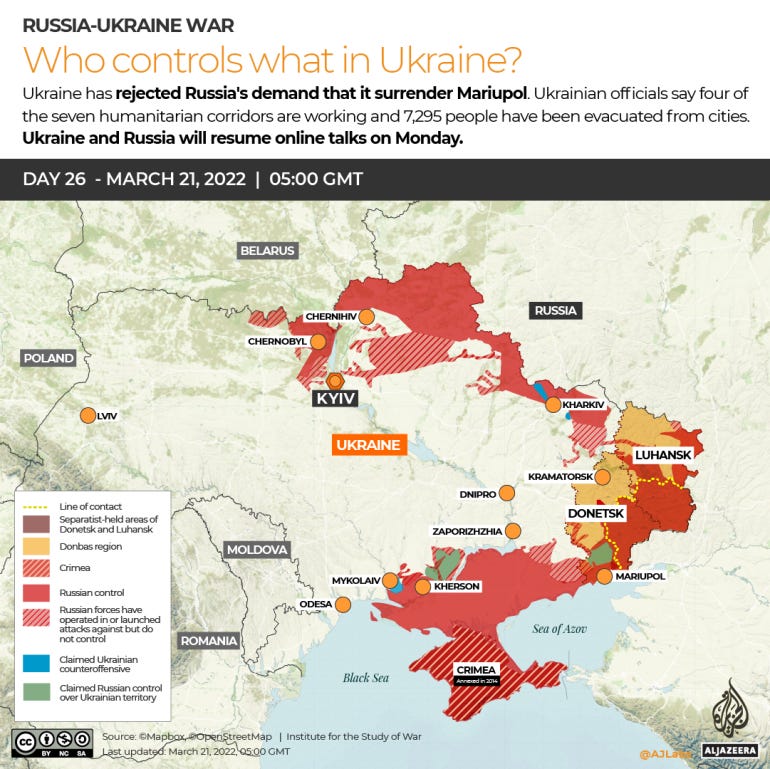
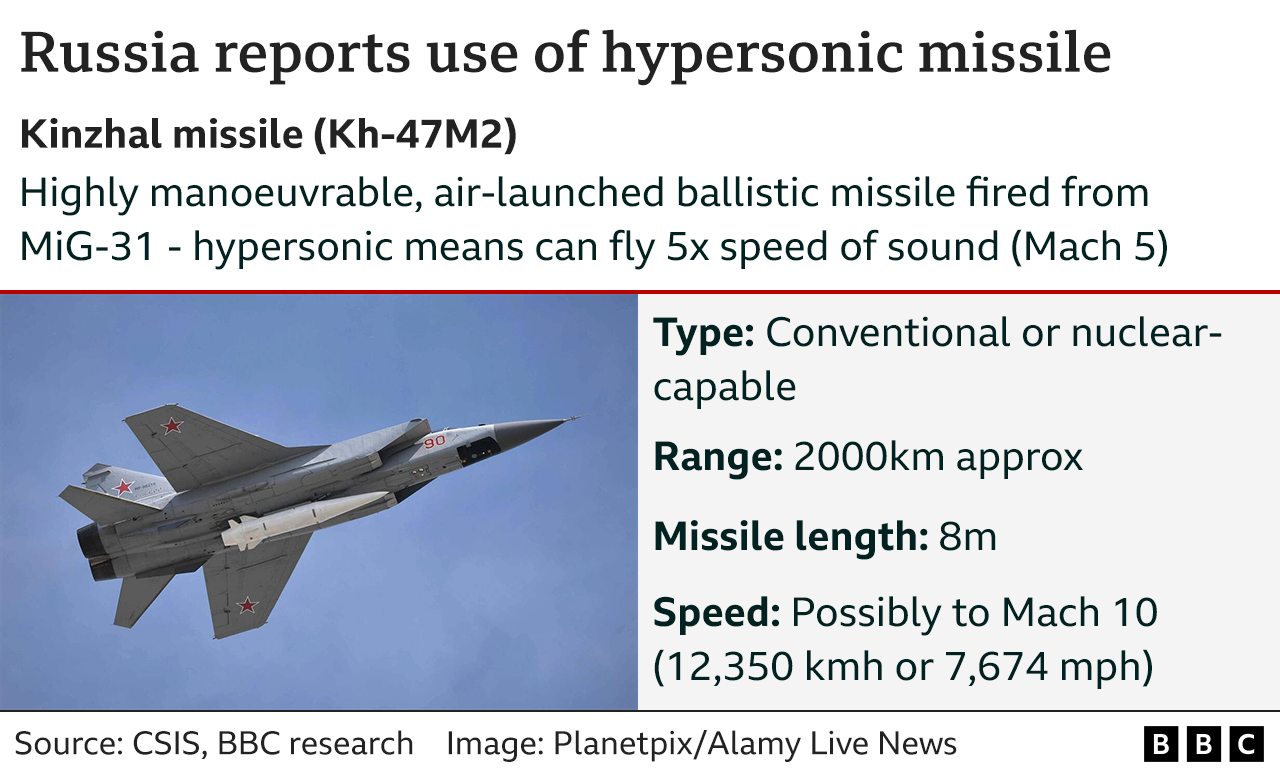
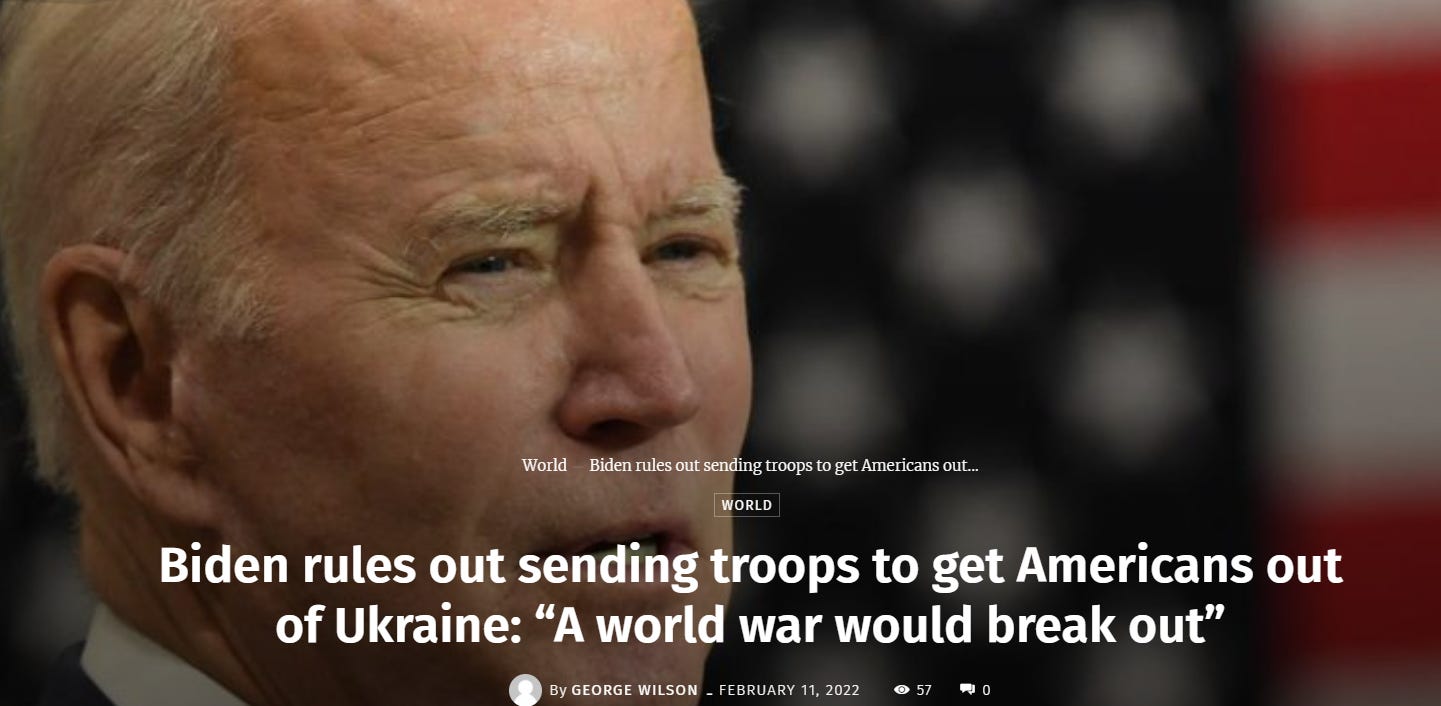

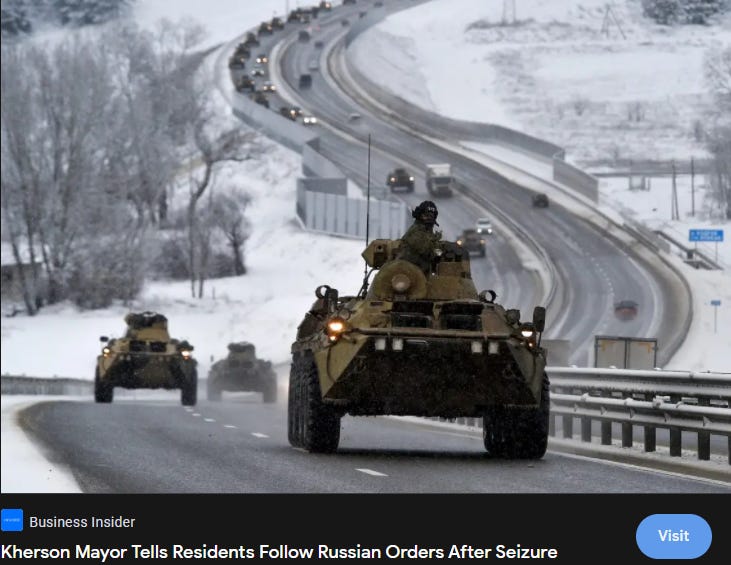
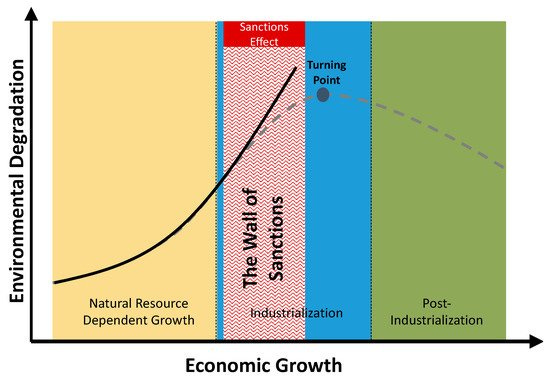
Mr. Jones, your reasonable Realpolitik outlook is refreshing - your military analysis is, sorry to say, a bit naive - like others in the West, you impose what you think Putin's objectives are, over what he stated them to be: denazify, demilitarize and neutralize Ukraine - occupying it was never a goal - moreover to do so with only a couple hundred thousand troops, impossible - so what of the Russian Army's so-called 'stall out' as it approached Kyiv ? classic feinting tactic - what did it achieve ? it pinned down half the Ukraining Army defending an objective Russia had no intention of taking, while it has effectively cut off the rest of Ukraine's forces, splitting them into 3 sections which can no longer aid one another - here, listen to an expert describe it: "Is Russia Losing the War in Ukraine?" former Marine, military scholar, Scott Ritter - https://www.youtube.com/watch?v=AyXyouRs9Ug